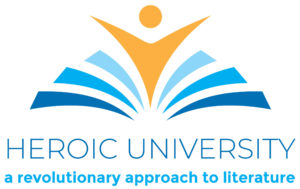As the key phrases might indicate, Looking for Alaska’s protagonist, Miles Halter (dubbed “Pudge” by his roommate for his rail-like physique) is about as different as can be from Sutter Keely of The Spectacular Now. While Sutter is all about sucking the juice out of the present moment, Miles’ thing is memorizing the last words of authors, historical figures, and other people….people such as François Rabelais, whose dying words were supposed to have been “I go to seek a Great Perhaps” (the reason Miles gives his parents for why he wants to go to boarding school). He also likes to read biographies of great writers more than he likes to read the things they have actually written. What do these things tell you about him?
Miles enters the coed Culver Creek boarding school in Alabama for his junior year in high school and encounters the delights and deficiencies of institutionalize school living. His more-experienced roommate, who goes by “Colonel,” takes him under his wing, warning him about the delineations between the regular boarders and the “Weekend Warriors” (children of rich families who return home every weekend to enjoy the benefits of affluence), as well as the strict disciplinary policies of “the Eagle,” dean of students Mr. Starns. The Colonel also introduces him to Alaska, a character that I’m coming to see is a mainstay of Green novels—the mysterious, brilliant, sexy, gorgeous, but somewhat self-destructive female obsession that is out of the league of Green’s geeky male narrators (which appear to be stand-ins for Green himself, a self-proclaimed nerd).
This book is truly a bildungsroman, or coming-of-age novel, and quite a good one. Green captures that experience when you are first thrown into living with a bunch of strangers your own age and how you somehow create your own little tribe that soon become the most important people in your life, even if you haven’t known them for more than a few months. Miles gets to experience a number of important firsts in his life—first time smoking, first time drinking, first girlfriend, and, of course, first case of unrequited love. Of course, it doesn’t take long for these firsts to become habits, despite (or because of?) the school’s strict prohibition against tobacco, alcohol, drugs, and sex.
But more important than these teenage behaviors, much of the book is about the intellectual or even spiritual aspects of bildungsroman. Once outside his familiar environment and daily familial influence (although, so far among the books I’ve read, Green’s male protagonists generally have pretty cool and hands-off parenting styles), Miles starts to ponder some of life’s big questions. What is life all about? What happens after death? When should rules or laws be followed and when should they be broken? Is life simply a “labyrinth of suffering?” What gives us hope when things in life turn sour?
Miles wrestles with these questions in an interesting and age-appropriate way, especially when a major event at school bring them to the forefront of his attention. I love how Green balances the standard teenage rebellion behaviors, like smoking and drinking when you aren’t supposed to, with physical aspects of the initial forays into sexual activity, WITH the deeper philosophical themes of starting to create one’s own life. I found this book to be a very satisfying treatment of the many facets of a young person today really trying to make the transition to maturity. It is no surprise to me that the book won the 2006 Printz award for the “best book written for teens, based entirely on literary merit.”
So Sutter Keely had it all figured out with his “Spectacular Now” theory. Miles Halter certainly found himself stepping into his sought-after “Great Perhaps.” I thinking reading both books may help adolescents make that transition themselves with a little more insight. They are also great reminders for us parents about what our children are going through during this challenging phase of their lives.

